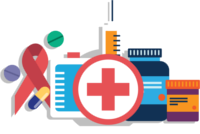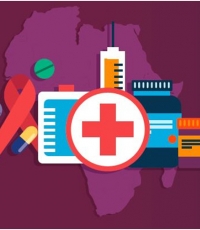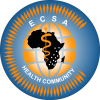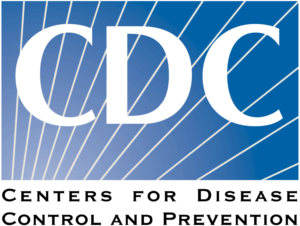
Johannesburg, 10 July 2017 – Mine workers risk their health to produce the wealth that comes from the mines and we have a responsibility to look after them and their communities in Africa. According to South Africa Department of Health Director General, Madame Precious Matsoso, access to treatment and compensation for occupational lung diseases and TB must be tackled not only from the miners’ perspective but also include other vulnerable professions such as health workers who expose themselves while providing treatment to the patients.
Countries must invest in appropriate protective equipment to prevent the spread of occupational TB and put in place compensation procedures. Furthermore, as the region with the highest burden of TB in the world, Madame Matsoso urged Southern African Development Community (SADC) countries to take leadership by investing in research and development for newer, safer TB regimens with shorter treatment time because current treatment of TB is still reliant on regimens that were developed a long time ago.
“The SADC region can pull resources together to invest in research and provide incentives to scientists to find innovative regimens that will reduce the treatment time for TB from 18 months to only 3 months”, the Director General said.
Madame Matsoso was speaking at the NEPAD Agency during the opening of a regional Knowledge Exchange on Occupational Health and Safety, and Mine Health Regulation organized by Southern Africa Tuberculosis and Health Systems Support (SATBHSS) project in collaboration with the South Africa Departments of Health, Mineral Resources and Labour. The aim of the Knowledge Exchange is to strengthen regional capacity to manage the burden of TB and occupational diseases in the mining sector and is taking place in South Africa from 10 – 15 July 2017. The Knowledge Exchange is hosted by South Africa with participation from SATBHSS project implementing countries; Malawi, Lesotho, Mozambique and Zambia.
During the opening remarks, World Bank (WB) representative, Senior Public Health Specialist Melusi Ndhlalambi emphasized that TB control is a major public health and economic development issue that requires governments to dedicate resources to tackle it forcefully. TB knows no borders so tackling it is no longer a national issue, but also a regional one and approaches must realign accordingly. He further stated that the support from the World Bank is a response to galvanize national efforts to ensure a regional approach is utilised that brings countries to work collaboratively.
Mr Ndhlalambi said that African countries must use innovative and evidence-based solutions to tackle TB. Hence, events such as this Knowledge Exchange not only provide learning opportunities but are also critical in identifying bottlenecks and finding practical solutions to these challenges. He also stated that the knowledge exchange will help to deepen the multi-sectoral synergies at country level, as well as between the countries in the implementation of the SATBHSS project.
NEPAD Agency Head of Health Programmes, Margareth Ndomondo-Sigonda who was speaking on behalf of the CEO, said that working together collaboratively, beyond geographical boundaries will help to tackle the burden of TB in Africa. She stated that the regional knowledge exchange will bring about a paradigm shift in the manner regional and national programmes address the burden of TB in Africa and will become a model that other regions shall endeavour to implement to end TB by 2030 in the continent.
Mrs Sigonda said that by the end of the five (5) days, participating countries will have gained the necessary knowledge, and learnt from each other so that they can contextualize this knowledge and implement similar evidence-based initiatives.
East Central and Southern Africa Health Community (ECSA-HC) representative, Ivandra Chirime reminded participants that one of the biggest challenges we face in occupational diseases is weak expertise and there is need to strengthen this. Therefore, gatherings such as this one are critical in identifying the necessary measures to strengthen this area in many countries. She reaffirmed that ECSA-HC and NEPAD Agency as regional coordinators of the SATBHSS project are available to provide technical support to the countries in occupational health to save lives and end TB by 2030 in Africa.
Heads of delegations from the SATBHSS project participating countries welcomed the initiative to host a regional knowledge exchange and were looking forward to learning more especially on the on-stop –shop to gain knowledge and exchange ideas that will help to strengthen their efforts to tackle the burden of TB. South Africa has put in place a one-stop-shop where miners can access TB and occupational lung disease services in one place.
The one-stop-shop not only deals with administrative issues in treatment and compensation but also reduce the long process of paper work and standing in queues. Countries participating in the knowledge exchange are urged to do the same and incorporate the one-stop-shop concept in to their health systems in addition to solving administrative hurdle of access to treatment and compensation.






